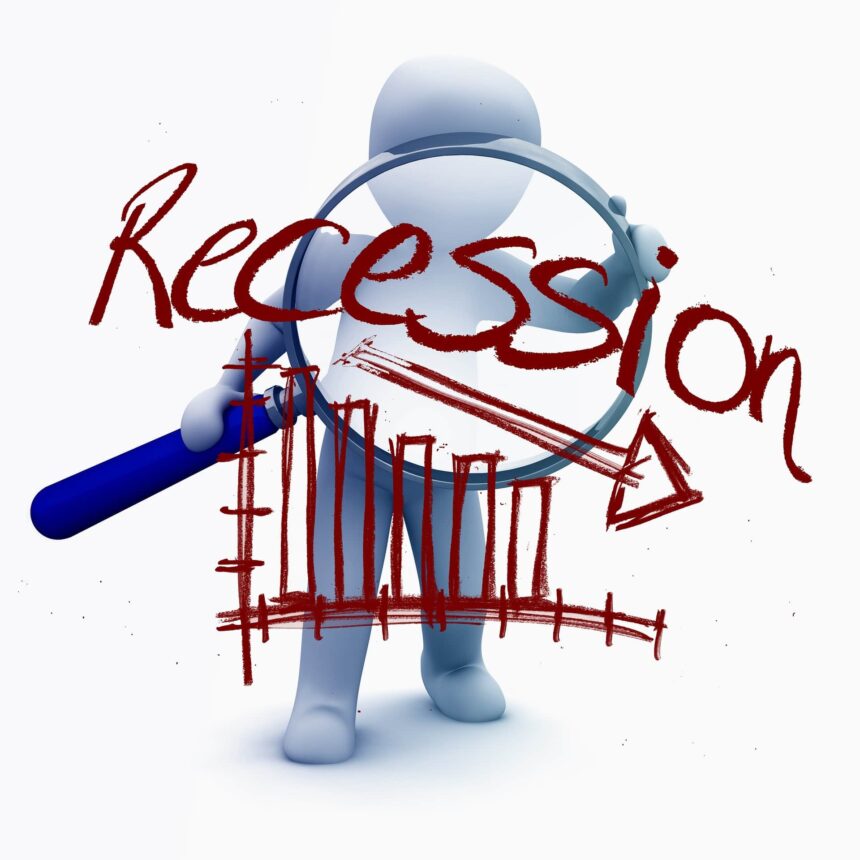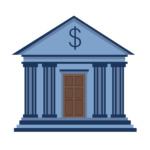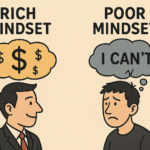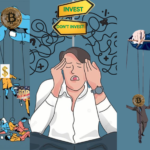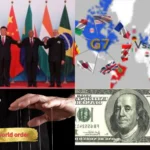KEY TAKEAWAYS:
- Recession is the sudden economic downfall, that results in unemployment, inflation, poverty, and economic crisis
- Gross Domestic Product is the most potential indicator to navigate the economic recession
- Imbalance of demand and supply, currency devaluation, and Fear are the main causes of recession
- Authorities can prevent internal economic recession by maintaining the balance in the economy and neutralize the global recession effects by taking preventive measures
Economic recession is the most heard term nowadays. especially, developing countries suffered from its drastic effects. The global economy tends to enter a recession period, which is estimated to last for a long time. To prevent yourself from its destructive outcomes, one should have a basic understanding of it. It is the sudden negative growth of the economy, which results in millions of people falling below the poverty line, unemployment rises, hyperinflation, and investors losing confidence, in a nutshell, the entire economic activity decelerated.
Such a great downfall doesn’t take place in days or weeks, it is like a volcano that is getting heated before it gets erupted. before the economic volcano erupts, it has some indicators that indicate the upcoming crisis. These indicators can help us analyze the upcoming economic storm and take required preventive measures.
ECONOMIC INDICATORS THAT NAVIGATE RECESSION:
The modern-day conventional economic system is quite complex and fragile, little mishandling or incompetence may cause a huge disaster, and it takes decades to cover up such disasters. The GDP. (Gross Domestic Product) is the key indicator to analyze the economy of any country, this term is the set of economic indicators that combine calculated to measure the current economic growth of a country. It includes spending, investments, consumption, and Balance of payments.
GDP calculates all the goods and services produced within the country along with its consumption and net exports to other countries. Net exports refer to the net trade of the country, it can be a trade deficit or surplus. The country whose balance of payment is positive or has a trade surplus is considered doing well economically.
The continued downfall in GDP indicates a recession, elementary when the country’s production growth of goods and services is affected adversely and import bill surges, resulting in a weakening of the economy, on the other hand, when the government uses unwanted tactics for GDP growth like increasing money supply in the country have even worse effects lately, the economy of the county forms a bubble which will burst sooner or later but eventually, and when it burst, the majority of the country’s population suffered drastic affects.
CAUSES OF RECESSION:
The economy of any country is based on two basic elements: supply and demand. Whenever one of these two gets far away from the other the recession begins. The rise in the GDP indicates the growth of the economy which takes place when people earn more. Simultaneously, they spend and invest more as well, and businesses get boosted and public buying power rises too, resulting in a hike in demand. This situation isn’t problematic until the demand meets the supply called the “Equilibrium point”, but as we all know “Economic resources are scarce”, at one point the demand exceeds the supply and this is the point where inflation hits. At this time government intervention is required but rising GDP and a hefty amount of tax collection make authorities greedy, and gradually the inflation rises to a dramatical point where there is no option left but to slow down the economy by using contractionary policies to control the money supply in the market.
When the central bank raises the interest rates to contract economic activities, borrowing declines and the public starts keeping money in banks instead of spending which results in lowering the money supply in the markets. This whole process has a turtle speed of covering up the mess generated by the poor decision-making of authorities.
On the other hand, devaluation of the currency plays a significant role in recession, this too happens when the government injects more and more money into the economy by borrowing from commercial banks, The central bank prints money and lends it to the government, they use that money to meet their operating expenses, in such way the money supply skyrocket and end up in devaluation of currency and hyperinflation.
If any country gets hit both ways: currency devaluation and the excessive gap between the demand and supply of commodities have a huge chance of going “Bankrupt”.
FEAR LEADS TO RECESSIONS:
In the whole world, governments always try to earn the investor’s confidence as much as they can, by introducing business-friendly policies and investment security, in this way, the government aims to have DFIs (Direct Foreign Investments) and local business certainty, the contrary, if the government failed to maintain the certainty in the market the local business get affected which leads to losing foreign investments as well. Because foreign investors always analyze the internal business conditions before investing their money. The uncertainty causes the most destructive element for the economy which is “Fear”. Investors’ fear makes them take their money out of the market which results in shutting down businesses, poor/negative economic growth, unemployment, poverty, and inflation. This all takes place just because incompetence of the authorities to maintain certainty in the market and the fear of ending up in a recession.
The trends in the market no matter whether downward or upward create opportunities for investors but uncertainty is like cancer to the economy that always affects a country’s financial stability adversely, to maintain certainty, long-term economic planning, and consistent efforts are required, as we know the democratic system doesn’t allow the long term economic plannings due to the limited tenure of the elected government. Moreover, every administration has its policies which it implements accordingly, and when their tenure ends another administration is elected and shapes the policies according to their manifest, resulting in inconsistency. In some democratic countries, the newly elected governments continue the beneficial economic policies even if it isn’t in their manifest but in the country’s best interest. To eliminate the fear which can probably lead to recession, the authorities need to decide in the country’s favor instead of their political interest.
CONCLUSION:
The whole world is now witnessing the significant effects of the recession on individuals’ lives. The outbreak of the COVID-19 virus brought destructive effects on the world economy, and many nations failed to bear its effects and looked for financial assistance from global organizations, including, the leverage to loan repayments. The supply was drastically hit as the lockdown was imposed by governments to counter the outbreak of the virus. This situation slowed down the global economy, the central banks lowered the interest rates to tackle the crisis, and somehow the darkest period passed but its lasting effects remain.
Post-COVID-19 the economies have begun to boost. The demand skyrocketed and supply was still unmatched, resulting in inflation all over the world, the cherry on top. The Russia and Ukraine war began. Which is the second shock after the Covid-19 outbreak. The supply of commodities gets affected and the whole world suffers from hyperinflation. Moreover, some developing countries reach the brink of bankruptcy. And now we are witnessing the recession, which already caused the loss of a huge part of wealth. Furthermore, the Middle East crisis resulted in a surge in energy prices, which affected businesses adversely and widened the gap between demand and supply even we are witnessing recessions are quite frequent in the present world and many people are falling below the poverty line, some people say, the system is trying to eliminate the middle and working class and soon there will be only two classes exist in society; rich and poor.
To prevent yourself and your business from recession’s destructive effects one needs to understand it and take proactive measures for survival.
THANKS!



